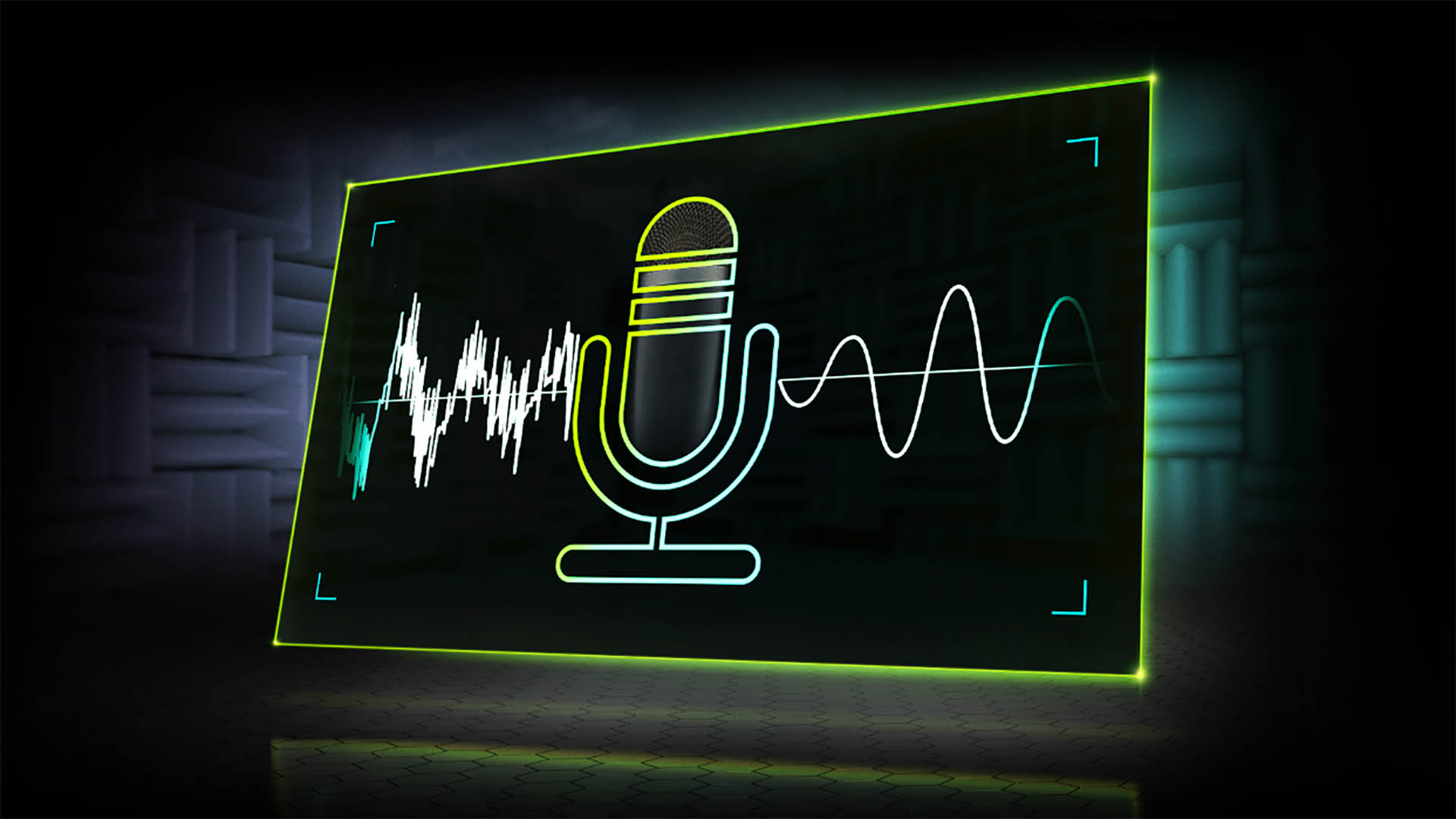RTX Voice hungers for human speech and Nvidia wants you to feed it
Nvidia's AI noise suppression application is good, but it could be better.

You can help Nvidia train the artificial intelligence at the centre of its noise suppression application, RTX Voice. All you have to do is head over to the RTX Broadcast Engine feedback page and submit a 15 second clip of yourself and your surroundings. And Nvidia probably won't deep fake your voice for fun and/or profit, or use it in some AI-humanoid hybrid. Probably.
RTX Voice is a free application (currently in beta) that removes the background noise from your microphone or incoming audio so that you can hear your team mates and colleagues clearer—and vice versa.
It's technically limited to the latest generation of RTX 20-series graphics cards—Nvidia claims the application requires the Turing architecture's "AI capabilities"—but some digging around in the backend upturned an easy solution that opens support for RTX Voice across GeForce GTX graphics cards, too.
If you've already tried RTX Voice, you likely know just how good it is at removing pesky background noise. But it's not perfect—it suffers the occasional blip or strange vocal artefact. That's where you come in.
In order to improve the RTX Broadcast Engine behind RTX Voice and RTX Greenscreen—Nvidia's background removal technology—the company's asking for a 15 second recording of your voice and a sample of your room's usual background noise. Perhaps you've a particularly yappy dog: capture it, send it to Nvidia, and it won't be a problem anymore….
Once that's done, you'll have to agree to Nvidia's Terms and Conditions before submitting. Just bear in mind, you are submitting this audio to be analysed, so if that's not something you're comfortable with then this isn't for you.
The biggest gaming news, reviews and hardware deals
Keep up to date with the most important stories and the best deals, as picked by the PC Gamer team.

Jacob earned his first byline writing for his own tech blog. From there, he graduated to professionally breaking things as hardware writer at PCGamesN, and would go on to run the team as hardware editor. He joined PC Gamer's top staff as senior hardware editor before becoming managing editor of the hardware team, and you'll now find him reporting on the latest developments in the technology and gaming industries and testing the newest PC components.

